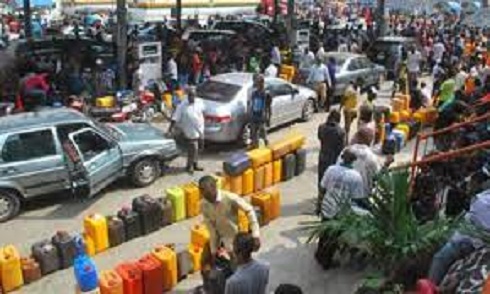
By William Emmanuel Ukpoju
In a startling revelation, Nigieria witnessed a significant escalation in the average retail price of Premium Motor Spirit (Petrol) in February 2024. According to the latest data from the National Bureau of Statistics (NBS), consumers faced a staggering 157.57% increase compared to the figures from February 2023, with petrol now priced at an average of N679.36 per litre. Additionally, when juxtaposed with January 2024 figures, the average retail price also experienced a 1.66% rise from N668.30.
A state-level analysis reveals Zamfara State as the most affected by the petrol price surge, with an average retail price of N750.43 per litre. Following closely are Kebbi and Taraba States, with average prices of N746.67 and N710.56 per litre, respectively. On the contrary, Kwara, Ogun, and Benue States reported the lowest average retail prices for Petrol, ranging from N650.00 to N652.73 per litre.
At the zonal level, the North West Zone emerged with the highest average retail price of N701.20 per litre, while the South West Zone recorded the lowest at N657.20.
The NBS conducted extensive data collection across 774 local government areas in all 36 states and the FCT, Abuja, surveying over 10,000 respondents in various outlets. This rigorous exercise, supervised by over 700 NBS staff and quality control officers, ensured accurate representation and reliable estimates.
The surge in petrol prices poses significant challenges for Nigerian consumers and businesses alike, with implications for inflation, transportation costs, and overall economic stability. As stakeholders grapple with the fallout from rising fuel prices, collaborative efforts between government agencies, regulatory bodies, and industry players are imperative to mitigate the impact on the populace and ensure economic stability as the revelation of such stark increases in petrol prices underscores the pressing challenges faced by Nigerian consumers and businesses.

